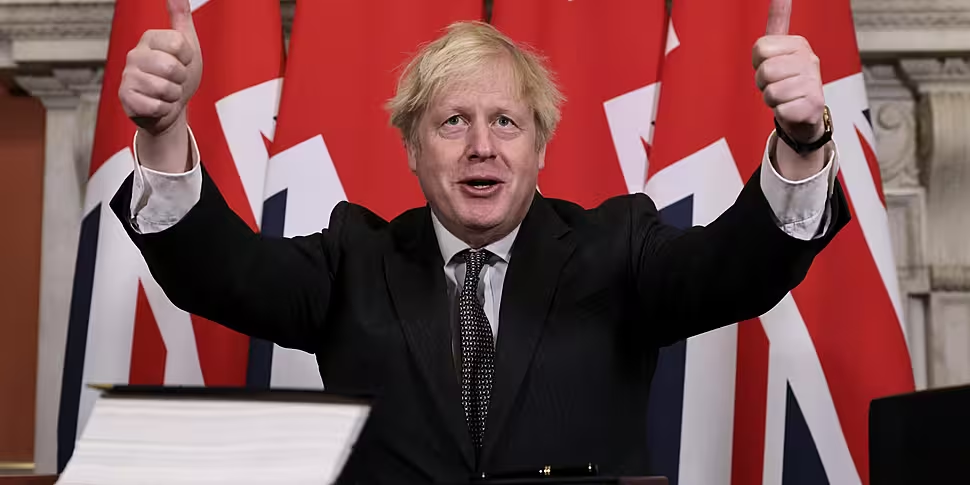The United Kingdom's Brexit transition period has expired, ending a 48-year history with the European Union.
Four years after the Brexit vote, the UK stopped following EU rules at 11pm Irish time.
New trading rules between the two nations now apply. Despite this, it's still unclear how well the new customs arrangements will work at the British border.
According to An Garda Síochána, there will be more patrols and "roving checkpoints" in border counties to ease the transition. The number of officers in the region have increased by a fifth since 2016.
In his New Year message, Prime Minister Boris Johnson said the UK was now "free to do things differently, and if necessary better, than our friends in the EU".
He said his government would take on the duty "with a sense of purpose and with the interests of the British public at the heart of everything" it does.
Mr Johnson – a key figure in the Leave campaign during the 2016 referendum – said it was an "amazing moment" for the UK.
Writing in the Daily Telegraph, he added that the combination of the Brexit deal and rollout of the Oxford vaccine means "we are creating the potential trampoline for the national bounceback".
Lord David Frost, the UK's chief negotiator, tweeted that Britain had become a "fully independent country again" while veteran Conservative MP Sir Bill Cash said the outcome "reaffirms the sovereignty of the United Kingdom."
In early December last year the country was in paralysis. Now @BorisJohnson has got #Brexit done, as promised in the General Election. This agreement reaffirms the #sovereignty of the United Kingdom.
— Bill Cash (@BillCashMP) December 29, 2020
Scottish First Minister Nicola Sturgeon also tweeted, writing: "Scotland will be back soon, Europe. Keep the light on."
It is her hope that an independent Scotland will soon be able to rejoin the union.
Main image by Andrew Parsons/No 10 Downing Street/Handout via Xinhua









